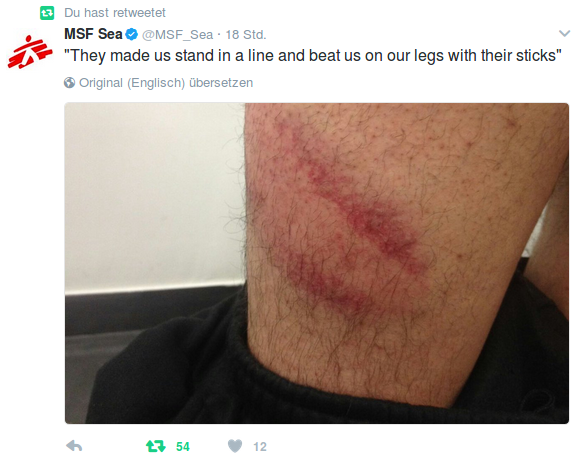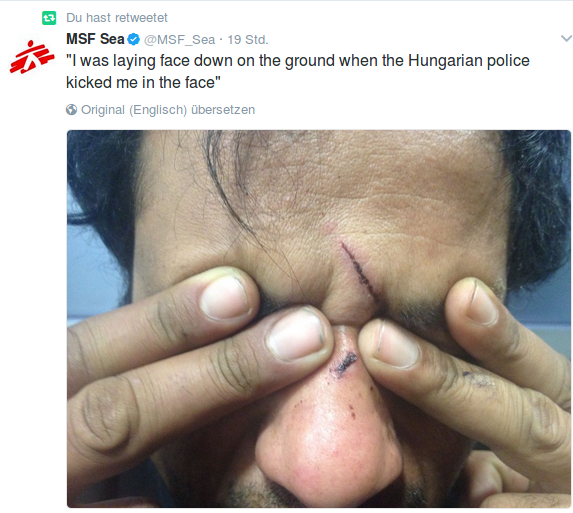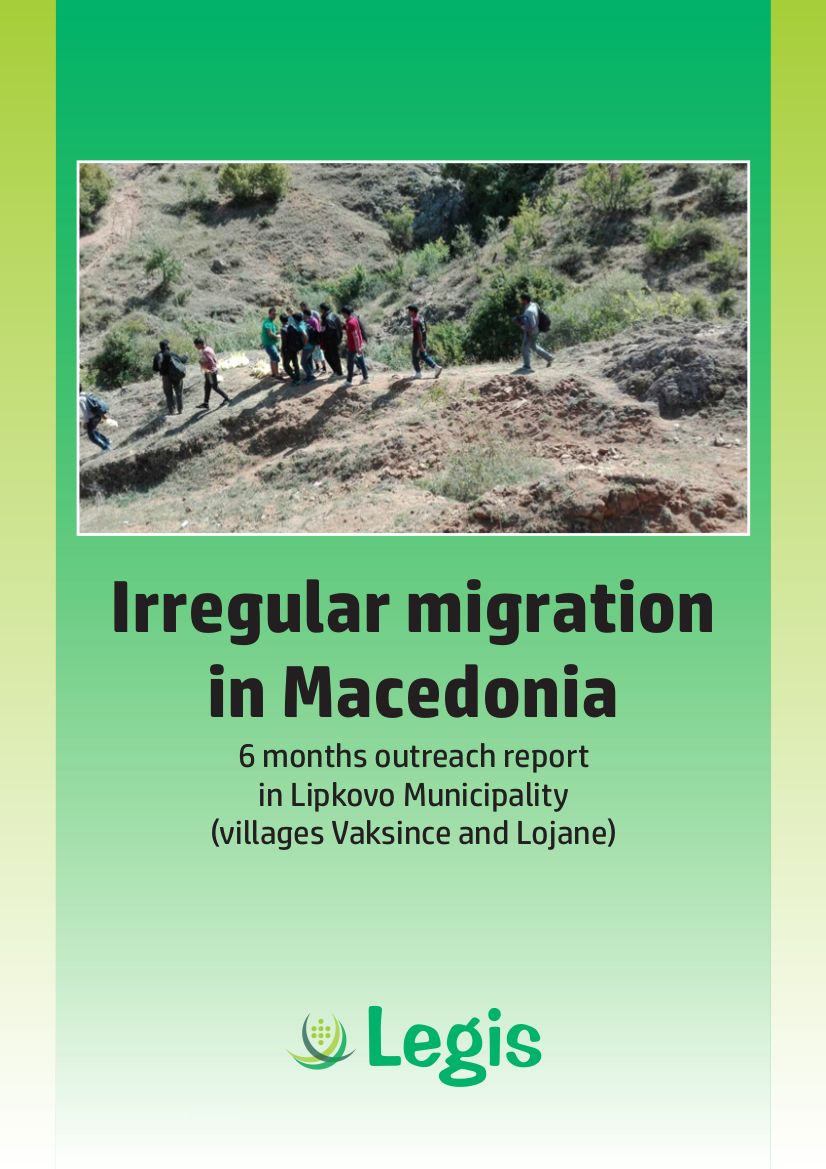In 2015 and 2016, more than a million people arrived in Europe after crossing the sea from Turkey to Greece and continuing their journey along the so-called Western Balkan route. In response, European Union Member States and other European countries hastily erected fences on their borders. In March 2016, Slovenia, Croatia, Serbia and former Yugoslav Republic of Macedonia shut their borders and left thousands
of people stuck in limbo, many in inadequate or unsafe accommodation.At present, there are about 7,800 displaced people in Serbia, and 350 people in Macedonia. Many of these people have come from conflict affected countries seeking protection, including Afghanistan, Pakistan, Iraq and Syria. Roughly 1,100 of those in Serbia and over 200 in Macedonia are not housed in government-run facilities and are forced to sleep rough.
Rather than being places of safety, countries on the Western Balkan route have failed to offer protection or due process to many new arrivals and instead have pushed them back to their previous country of transit or even another country, without giving them a chance to claim asylum.
Pushbacks are happening in different ways. Hungary and Croatia – both EU member states – have used brutal tactics, such as attack dogs and forcing people to strip naked in freezing temperatures. The Serbian authorities have generated a climate of fear and uncertainty amongst migrants by expelling groups of people who have been legally registered and were expecting to receive their right to an individual hearing. This
practice meant that in mid-winter, in freezing temperatures of -20oC, people were afraid to stay in government centres for fear of being pushed back to Macedonia or Bulgaria. Interviewees also accused Bulgarian authorities of treating people in such a brutal manner that they are afraid to return.The people who are moving through the Balkans, with cynical humour, call their efforts to continue their dangerous journey the ‘game’, a cruel ‘game’ where safety and protection are replaced with violence and intimidation from people in authority. As they attempt to move to a place of safety, people are forced to take enormous risks and suffer abuse at the hands of people smugglers, brave freezing temperatures in winter
and negotiate unknown and dangerous terrain, including forests and fast-flowing rivers. This is an often terrifying situation where beatings, dog attacks and robbery are rife, leading to serious injuries and even death. No one, regardless of their reason for moving via the Western Balkans route, should experience the violence and aggression which is being used by authorities. For refugees and others who have the right to
international protection from persecution and serious human rights violations, pushbacks stand in the way of seeking protection and enjoying their right to an individual assessment of their claims. Brutality, intimidation and devious tactics by authorities also engender a climate of fear and mistrust amongst people on the move. This report aims to firmly
put the spotlight on the acts of abuse being perpetrated by state authorities, and the failure of European countries to uphold people’s rights. We are calling for the responsible governments to immediately change their practises and hold perpetrators accountable.Oxfam and its partners, the Belgrade Centre for Human Rights (BCHR) and the Macedonian Young Lawyers Association (MYLA), are providing support to migrants, including refugees, in Serbia and Macedonia. Together, we call on the governments of Serbia, Macedonia, Croatia, Hungary and Bulgaria to:
• Immediately review all procedures at their borders to ensure that they are in compliance with Article 3 of the European Convention on Human Rights (ECHR), i.e. the prohibition on inhumane and degrading treatment, and Article 4 of Protocol No. 4 to the ECHR, i.e. the principle of non-refoulement and the prohibition of collective expulsions. Also, ensure that the quality and outcome of these procedures can be scrutinized before a national authority, including by providing access to an effective remedy, in compliance with Article 13 of the ECHR.
• Conduct an independent and rigorous assessment of each individual’s claim for international protection in order to ensure that they have access to an individual asylum determination procedure, with full rights to representation and interpreter services and with the right to appeal the decision, with any deportation proceedings suspended pending the outcome of the appeal.
• Urgently investigate and take action against all perpetrators of crimes against migrants, including all forms of inhuman or degrading treatment by law enforcement officers, physical violence, and robbery
• Introduce preventive measures against future violations, including a rigorous hiring process for law enforcement officers before deployment, incorporation of improved technical equipment such as body-worn cameras, and mandatory training on European and international human rights and refugee law. A high level of applicants to the Hungarian police force did not pass a psychological test in 2016. Therefore all officers hired in 2015 – at the peak of the crisis in Hungary – should also be required to undertake a psychological test
and any who do not pass must be removed from the force
immediately.• Allow Ombudsman offices (in charge of existing National Preventive Mechanisms) and relevant civil society to have full and unimpeded access to border areas in all the countries concerned as a matter of urgency as outlined in Article 3 and 4 of the Optional Protocol to the Convention against Torture and other Cruel, Inhuman or Degrading Treatment or Punishment.
New Legis-Report: Irregular migration in Macedonia – 6 months outreach report in Lipkovo Municipality (villages Vaksince and Lojane)
Europe’s Refugee Frontier: Pushbacks and Border Closures in Serbia
In the first part of our series ‘Europe’s Outsourced Refugees,’ we report from Belgrade on how illegal pushbacks of asylum seekers along the Balkan route are leaving refugees invisible and unprotected.
Wie die Eisenbahn das Leben von Lence Zdravkin verändert hat
In ihrem früheren Leben war die 48-jährige Lence Zdravkin aus Veles in Mazedonien Journalistin. Sie arbeitete in der kleinen privaten Fernsehstation ihres Ehemannes Angel. Das Haus der beiden liegt direkt an den Gleisen, der Hauptstrecke der Eisenbahnlinie die durch Mazedonien führt, und diese Bahnstrecke hat das Leben der Familie Zdravkin von Grund auf verändert.
ARD VIDEO: Die Toten auf der Balkanroute
Manche sind erfroren, manche vor Erschöpfung zusammengebrochen. Manche wurden Opfer von Gewaltverbrechen und manche wurden nachts, als sie entlang der Eisenbahnlinien liefen, von einem Zug erfasst und getötet. Es gibt viele Tote auf der Balkanroute. Genaue Zahlen aber gibt es nicht.
Gastbeitrag von Katja Kipping: Das Elend von Belgrad
Wohin Obergrenzen für Flüchtlinge und das Gerede darüber führen, hat unsere Gastautorin in Serbien gesehen. Sie besuchte ein wildes Flüchtlingslager.
A migrant from Pakistan passed away after being attacked near the highway Skopje-Kumanovo
I.A.S from Pakistan passed away, who illegally entered Macedonia, and was attacked on 16.2.2017, on the highway Skopje – Kumanovo (near the Bunarxhik village), transmits Anadolu Agency (AA). The information was confirmed from the Ministry of Internal Affairs of Republic of Macedonia, announcing that a person out of two passed away from attacks on 16.2.2017. “Regarding the “robbery” incident on 25.2.2017, a doctor in the department of neurosurgery at the Clinic Center – Skopje, announced that the attacked I.A.S. passed away”, MIA announced.
Tweets sent on the 22.2.2017




Serbia waiting: between trapped migrants and EU enclosures
A detailed article written by Allessandra Sciurba, a post-doc researcher and activist from the University of Palermo.
“As in the game where, when music stops, you must sit faster that other participants”, Commissioner Cucić tells me, “in this moment, we are the one left standing. Tomorrow it can be another one, if we also close the borders”. It seems that at the present juncture, the Serbian authorities are asking themselves first and foremost how the European Union wants Serbia to act. Are the standards to join EU based on the respect of human rights, or simply on the length and efficacy of border fences?
Everyone, in Serbia, seems now to be waiting for something.”
AIDA Country Report: Serbia
Zusammenfassung:
Overview of the main changes since the first report. The first report was last published in March 2016:
-
Asylum reform: The adoption of the new Asylum Act, initially foreseen for 2016, has been postponed. The draft of the new Asylum Act has been shared with civil society representatives for comments, and was also received positively by the European Commission. The new law will introduce both accelerated and border procedures. Bearing in mind that the Asylum Office is understaffed even in light of the single existing procedure, it is reasonable to assume that additional personnel will be required to implement the additional proceedings. It is otherwise difficult to envision adequate implementation of the new law in reality.
Asylum procedure
-
Access to the territory: In July 2016, the Serbian Government adopted a decision to form mixed patrols of the army and police to strengthen the border with FYROM and Bulgaria. The Ministry of Defence reported in December 2016 that more than 18,000 migrants had been prevented from illegally crossing the border from Bulgaria. Between September and December 2016, the Belgrade Centre for Human Rights received 13 complaints concerning collective expulsions or push-backs to FYROM that involved approximately 750 persons. Those removed included people who had predominantly been residing in the reception centre in Preševo, as well as persons who had been intercepted by patrols of the police or army at the border, or mixed patrols deeper within the territory of Serbia.
Reception conditions
-
Accommodation: By the end of 2016, more than 7,000 people were residing in Serbia, the vast majority of whom (around 82%) were accommodated in camps along the border where they were waiting for their turn to be admitted into Hungary. The remainder stayed in the streets of Belgrade and border areas with Hungary.
-
The Ministry of Interior opened additional temporary reception centres to respond to the increase in refugees and migrants.
Content of protection
-
Integration assistance: In December 2016, a Decree on the Manner of Involving Persons Recognized as Refugees in Social, Cultural and Economic Life (“Integration Decree”) was enacted and entered into force in January 2017. The Decree foresees assistance various areas crucial to integration such as access to the labour market and education, including assistance in recognition of qualification and language courses. The Decree only refers to recognised refugees and does not explicitly cover subsidiary protection beneficiaries. However, due to its entry into force in January 2017, it remains to be seen how it will be implemented in practice.

